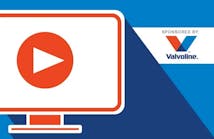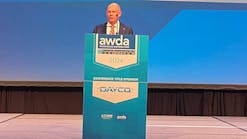Convoy Solutions, LLC celebrated its fifth anniversary operating as IdleAir since February 2010.
Since resuscitating IdleAir from the ashes of a formerly terminated business, the company has realized a number of milestones:
IdleAir preserved a proprietary remotely managed “virtual motel” network with over 1,000 active rooms and more than 6,000 parking spaces of intact expansion capacity. The durable high-voltage infrastructure rescued had an original cost of more than $150 million and in many cases has significantly exceeded its design life with very few mechanical challenges.
Since 2011 IdleAir has doubled its footprint of locations to more than 40 truck stops and fleet terminals. This month the company opened the Flying J in Latta, S.C., which is its second solar-PV powered truckstop. The company also has completed construction of its first of several planned dedicated IdleAir terminals with Covenant Transport at their Headquarters and national training facility in Chattanooga, Tenn.
IdleAir broke ground in Nuevo Laredo, Mexico with our first-ever operation outside of the USA with EGOBA Transportadora.
IdleAir successfully launched discount pricing bundles this past year, like the “40 hour Reset Special” and the 10-hour “ConvoyTV+Power Special”. Additionally they are launching an expanded, overnight 12-hour discount bundled offering just for OOIDA members.
This past Winter IdleAir absorbed most of the assets and operations of the former American Idle Reduction (AIR) and is currently working to modify its core locations to be IdleAir-enabled for handling IdleAir member card and fleet-card traffic for more than 45,000 professional driver customers.
MediDock
As part of the acquisition of AIR, the company has the MediDock anti-idling ambulance team and their proprietary pedestal technology among its portfolio of offerings. The company sees interesting under-penetrated idle-mitigation opportunities in the ambulance industry that parallel aspects of the trucking industry. Convoy Solutions strives to analyze driver behavior in order to maximize utilization of idle-reduction technologies, which save fuel and improve the health, safety and comfort of drivers.
Motorized Hose Lift
IdleAir is finishing Beta tests of a motorized lift for service modules and hoses. This lift will make it easier for drivers to insert and remove our standard window units, which weigh more than 50 lbs without the lift. Deployment of the lift assembly also will reduce maintenance costs and allow IdleAir to install electrified parking spaces in pull-through locations, which should broaden the range of parking locations we can operate on.
Mobile Customer Signup Tablet
IdleAir's technology department is completing Beta tests of a mobile tablet unit. This handheld device will allow truckstop staff to sign up customers, trouble-shoot hardware issues and perform customer account maintenance outside of the IdleAir office. This capability is going to become increasingly critical as the company ramps up its experimental parking reservation service at select locations.
Broadband Upgrades
IdleAir continues to monitor telecommunications carriers for the best bandwidth options for drivers. Currently nearly half of all the company's locations sport at least 10 MB of broadband access with one location already at 100 MB. High speeds combined with ethernet connections inside our service module are a favorite of gamers and other users of streaming services.
EV charging, Renewables, Grid storage
IdleAir continues to expand its partnerships with purveyors of complementary technologies in the EV charging and energy storage industries. The company finished its second solar-PV equipped site in 1Q 2015 and has operated one of the first DC Fast Chargers on the NJ Interstate since 2012.
Brownfield Paid Parking Opportunities
IdleAir is working with municipalities in congested trucking corridors to explore the long term redevelopment of Brownfields and other underutilized properties to create safe TSE-enabled paid parking opportunities.
Over the last 10 years, IdleAir and its predecessors have saved the trucking industry over 50 million gallons of diesel waste while mitigating 500,000 tonnes of CO2.

